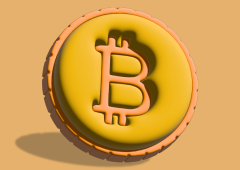Transaction Fees on Solana Spike to All-Time High Amid DeFi Volume Surge
26.10.2024 15:11 2 min. read Kosta Gushterov
For nearly two weeks, Solana has led the way in daily trading volumes within the decentralized finance space.
On October 24, transaction fees on Solana’s network (SOL) reached an all-time high, totaling over $11 million. This metric, known as “real economic value” (REV), includes both transaction fees and validator tips associated with maximum extractable value (MEV).
For nearly two weeks, Solana has led the way in daily trading volumes within the decentralized finance (DeFi) space, according to data from DefiLlama. On October 24 alone, its decentralized exchanges processed over $2.6 billion in transactions.
The recent spike in REV and trading volumes comes in the wake of the AI-driven meme coin trend. AI agent Truth Terminal played a key role in this by publishing information on Goatse Gospel that inspired the creation of the Goatseus Maximus (GOAT) meme coin.
As a result, Solana has seen a flood of AI-related tokens, with the meme token-focused Pump.fun platform peaking at 36,339 old-trade cryptocurrencies on Oct. 24, according to Hashed’s Dune Analytics dashboard. That represented more than 84 percent of the 43,166 new tokens issued on Solana that day, setting a new record.
Additionally, tokens backed by Pump.fun dominated Solana’s weekly trading volumes for the first time, registering approximately $8.7 billion last week, based on Blockworks Research. That surge also pushed Pump.fun’s cumulative revenue above the 1 million SOL mark just nine months after launch.
-
1
XRP Ledger Deploys EVM-Compatible Sidechain to Expand Multichain Utility
30.06.2025 21:00 2 min. read -
2
What the U.S. Blockchain Act Means for Crypto’s Future
29.06.2025 18:00 2 min. read -
3
Top 10 AI and Big Data Crypto Projects by Development Activity
01.07.2025 19:00 2 min. read -
4
Top 10 blockchains by transaction volume in June 2025
06.07.2025 16:00 2 min. read -
5
German State-Owned Development Bank Issues €100 Million Blockchain Bond
11.07.2025 7:00 2 min. read
Tether Ends Support for Five Blockchains in Infrastructure Shift
Tether, the leading issuer of stablecoins, is phasing out support for five older blockchains.
German State-Owned Development Bank Issues €100 Million Blockchain Bond
Germany’s state-owned development bank NRW.BANK has issued a €100 million ($116.7 million) blockchain-based bond, marking one of the largest public-sector entries into digital securities in Europe.
Top 10 blockchains by transaction volume in June 2025
New data highlights a dramatic lead for Solana in blockchain activity for June 2025. According to the figures, Solana processed a staggering 2.98 billion transactions, far outpacing all other chains in the ecosystem.
Top 10 AI and Big Data Crypto Projects by Development Activity
According to new insights from market intelligence platform Santiment, development activity in the crypto sector’s AI and Big Data segment remains strong, with several major projects showing notable GitHub activity over the past 30 days.
-
1
XRP Ledger Deploys EVM-Compatible Sidechain to Expand Multichain Utility
30.06.2025 21:00 2 min. read -
2
What the U.S. Blockchain Act Means for Crypto’s Future
29.06.2025 18:00 2 min. read -
3
Top 10 AI and Big Data Crypto Projects by Development Activity
01.07.2025 19:00 2 min. read -
4
Top 10 blockchains by transaction volume in June 2025
06.07.2025 16:00 2 min. read -
5
German State-Owned Development Bank Issues €100 Million Blockchain Bond
11.07.2025 7:00 2 min. read


